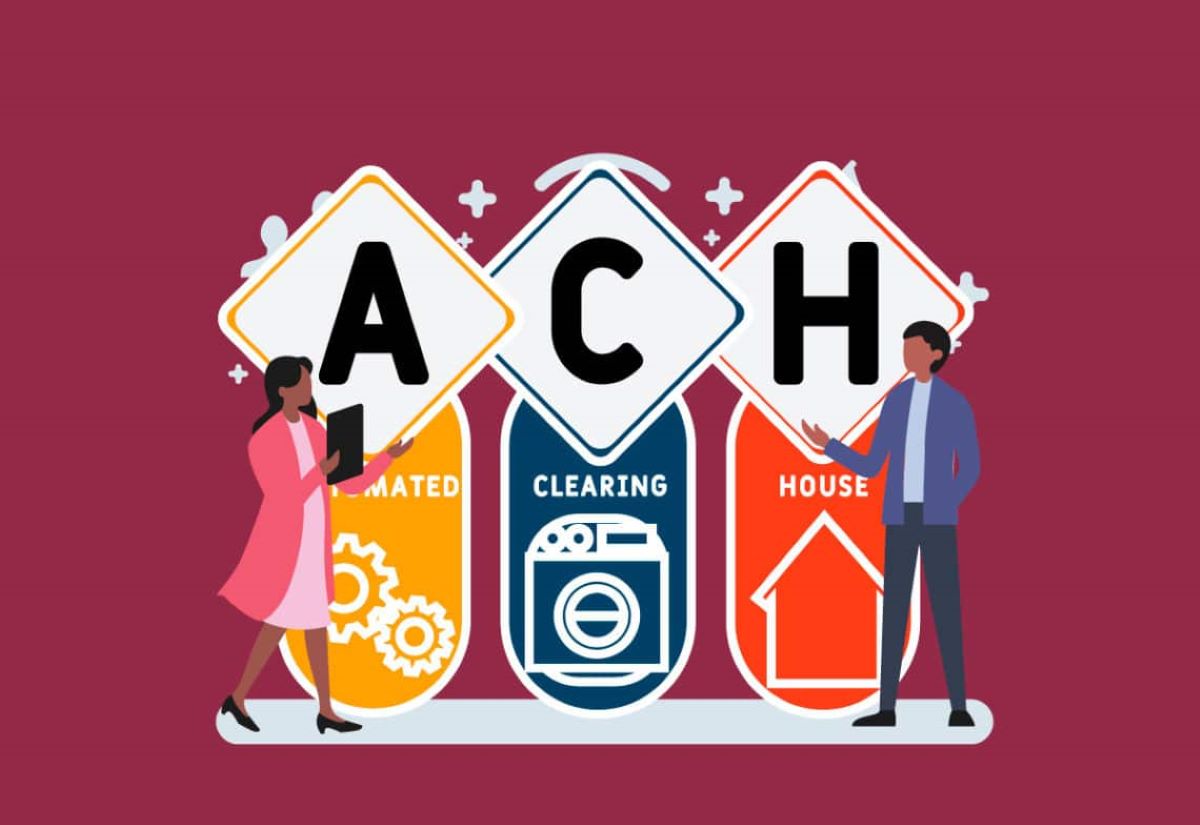Home>Finance>How To Stop Payday Loans From Debiting My Account?


Finance
How To Stop Payday Loans From Debiting My Account?
Modified: February 6, 2024
Learn effective strategies to prevent payday loans from debiting your account. Take control of your finances with expert advice on managing payday loan payments.
(Many of the links in this article redirect to a specific reviewed product. Your purchase of these products through affiliate links helps to generate commission for LiveWell, at no extra cost. Learn more)
Table of Contents
Introduction
Dealing with financial challenges can be overwhelming, and the urgency to address immediate monetary needs may lead individuals to consider payday loans as a quick solution. However, the convenience of these loans often comes with significant drawbacks, especially when it's time for repayment. Many borrowers find themselves in a cycle of debt due to the high interest rates and aggressive payment collection practices associated with payday loans.
In this article, we will explore effective strategies to stop payday loans from debiting your account. Whether you're currently facing this issue or seeking preventive measures, understanding your rights and taking appropriate actions can provide relief from the burden of continuous debits.
It's crucial to approach this situation with a clear understanding of the underlying challenges and the options available to you. By familiarizing yourself with the mechanisms of payday loans, your rights as a borrower, and the steps to take in stopping automatic debits, you can regain control of your finances and work towards a more stable financial future. Let's delve into the intricacies of payday loans and the actionable steps you can take to stop them from debiting your account.
Understanding Payday Loans
Payday loans, also known as cash advances or paycheck advances, are short-term loans typically characterized by high interest rates and fees. These loans are often marketed as a quick fix for unexpected expenses or financial emergencies. Borrowers can obtain payday loans by providing proof of income and a post-dated check or authorization to debit their bank account for the total loan amount, including fees, on their next payday.
One of the defining features of payday loans is their accessibility, as they are relatively easy to obtain compared to traditional bank loans. However, the convenience of acquiring these loans often comes at a steep cost. The annual percentage rates (APRs) for payday loans can reach triple digits, making them an expensive borrowing option.
Furthermore, the repayment terms for payday loans are notably short, typically ranging from a few days to a month. If a borrower is unable to repay the loan in full by the due date, they may be subjected to additional fees and high-interest charges, leading to a cycle of debt that can be difficult to break free from.
It is essential for borrowers to carefully evaluate the terms and costs associated with payday loans before committing to them. Understanding the potential financial implications and the risks involved can help individuals make informed decisions regarding their borrowing needs. By gaining insight into the nature of payday loans, borrowers can better assess whether alternative financial solutions, such as negotiating payment plans with creditors or seeking assistance from nonprofit credit counseling agencies, may be more suitable for their circumstances.
Know Your Rights
As a borrower, it’s crucial to be aware of your rights when dealing with payday loans and the associated automatic debits from your bank account. Understanding your rights can empower you to take appropriate actions and protect yourself from unfair or abusive practices by payday lenders.
- State Regulations: Payday lending regulations vary by state, and it’s important to familiarize yourself with the specific laws and regulations that govern payday loans in your state. These regulations may include restrictions on loan amounts, fees, and the number of rollovers allowed.
- Right to Revoke Authorization: Federal law provides consumers with the right to revoke authorization for automatic debits from their bank accounts. If you’ve authorized a payday lender to debit your account for loan repayments, you have the legal right to revoke that authorization at any time.
- Protections Against Harassment: The Fair Debt Collection Practices Act (FDCPA) prohibits debt collectors, including payday lenders, from engaging in abusive, unfair, or deceptive practices when attempting to collect debts. As a borrower, you have the right to be treated fairly and respectfully in all communications related to debt collection.
- Disclosure of Terms: Payday lenders are required to disclose the terms and costs of the loans they offer, including the annual percentage rate (APR) and any applicable fees. By understanding these terms, borrowers can make informed decisions about their borrowing needs and assess the affordability of the loans.
By familiarizing yourself with your rights as a borrower, you can assert greater control over your financial interactions with payday lenders and take proactive steps to address any issues related to automatic debits from your bank account. If you believe that a payday lender has violated your rights or engaged in unfair practices, you may consider seeking assistance from consumer protection agencies or legal professionals who specialize in financial law.
Contacting Your Bank
When seeking to stop payday loans from debiting your account, initiating direct communication with your bank is a crucial step in asserting control over your financial transactions. While payday lenders may have obtained authorization to debit your account for loan repayments, you have the right to intervene and prevent these automatic debits. Here are essential steps to consider when contacting your bank:
- Revoking Authorization: Inform your bank that you are revoking the authorization for the payday lender to debit your account. You may be required to submit a written request to revoke the authorization, and it’s advisable to keep a copy of the written communication for your records.
- Blocking Payments: Request that your bank block any further automatic debits from the payday lender. This action can help prevent additional withdrawals and provide you with immediate relief from continuous debits related to the payday loan.
- Monitoring Your Account: Regularly monitor your bank account to ensure that the payday lender complies with the revoked authorization. If unauthorized debits persist after you’ve taken the necessary steps to revoke the authorization, promptly notify your bank and document all relevant details for future reference.
It’s important to approach your bank with a clear understanding of your rights and the specific actions you wish to take regarding the automatic debits initiated by the payday lender. By proactively engaging with your bank, you can mitigate the potential financial impact of payday loan debits and work towards a resolution that aligns with your best interests.
Additionally, maintaining open communication with your bank can help you stay informed about the status of your account and any measures taken to address the unauthorized debits. If you encounter challenges or resistance from your bank in stopping the automatic debits, consider seeking guidance from consumer protection agencies or legal professionals who can offer assistance in navigating this process effectively.
Seeking Legal Assistance
When faced with persistent challenges in stopping payday loans from debiting your account, seeking legal assistance can provide valuable support and guidance in navigating complex financial situations. Legal professionals with expertise in consumer rights and financial law can offer tailored advice and representation to help you address issues related to payday loan debits. Here are key considerations when seeking legal assistance:
- Consulting Consumer Rights Attorneys: Consumer rights attorneys specialize in advocating for individuals facing unfair or deceptive practices by financial institutions, including payday lenders. By consulting with a consumer rights attorney, you can gain insights into the legal options available to stop automatic debits and address any violations of your rights as a borrower.
- Reviewing Contractual Obligations: Legal professionals can review the terms of your agreement with the payday lender and assess whether any contractual violations or predatory lending practices have occurred. Understanding the legal implications of the loan agreement can empower you to take informed action to protect your rights.
- Asserting Your Rights: With the support of legal representation, you can assert your rights as a borrower and challenge any unlawful or abusive practices associated with payday loan debits. Legal professionals can advocate on your behalf and engage with relevant parties to seek a resolution that aligns with legal standards and consumer protections.
It’s important to engage with reputable legal professionals who have a proven track record in handling consumer rights cases and financial disputes. By leveraging the expertise of legal experts, you can navigate the complexities of stopping payday loan debits with confidence and pursue a favorable outcome that safeguards your financial well-being.
Furthermore, legal assistance can provide a sense of reassurance and empowerment as you work towards resolving the challenges posed by payday loan debits. By collaborating with legal professionals who prioritize your best interests, you can address the situation proactively and seek meaningful recourse in accordance with applicable laws and regulations.
Conclusion
Effectively stopping payday loans from debiting your account requires a proactive approach that encompasses a thorough understanding of your rights, direct communication with your bank, and, if necessary, seeking legal assistance. By familiarizing yourself with the nature of payday loans and the associated risks, you can make informed decisions regarding your borrowing needs and take steps to mitigate the impact of automatic debits.
Understanding your rights as a borrower empowers you to assert control over your financial transactions and protect yourself from unfair practices by payday lenders. State regulations, federal laws, and consumer protections serve as valuable safeguards in addressing issues related to payday loan debits, and being aware of these rights is essential in navigating the challenges effectively.
When contacting your bank to stop payday loan debits, clear and assertive communication is key. Revoking authorization and requesting the blocking of payments can provide immediate relief from continuous debits, and regular monitoring of your account ensures compliance with the revoked authorization. In cases where challenges persist, seeking legal assistance from consumer rights attorneys can offer tailored guidance and representation to address complex financial situations.
It’s important to approach the process of stopping payday loan debits with determination and a commitment to protecting your financial well-being. By taking proactive steps and leveraging the support of relevant resources, you can work towards alleviating the burden of payday loan debits and pave the way for a more stable financial future.
Ultimately, by staying informed, assertively engaging with financial institutions, and seeking appropriate assistance when needed, you can navigate the complexities of payday loan debits with confidence and pursue a resolution that aligns with your rights as a borrower.














